Will You Still Love Me Tomorrow?
Will You Still Love Me Tomorrow?
In 1960, Carol King was the music-writing half of a budding songwriting team which also included her lyric-writing husband Gerry Goffin. When they got the opportunity to write a song for up-and-coming girl group The Shirelles, they responded with “Will You Love Me Tomorrow,” a pop masterpiece that topped the charts in 1961, the first #1 in history by a girl group and the first major success for the Goffin/King duo. Goffin and King started out as Brill Building-scene writers, working for impresario Don Kirshner at his Aldon company. As the story goes, Kirshner recognized the song's potential immediately, handing over a 10,000 dollar advance to each of the writers upon being presented with the demo. This was huge money to the struggling couple, who until then had none of their songs recorded.
Will You Still Love Me Tomorrow?
Amazingly, Carole King was only 18 when she wrote the song. She recorded a version herself later, sounding like a hesitant older woman, which simply doesn't work. It joins the long list of songs whose cover versions were better than the composer's own. The Shirelles had several other hits, including Mama Said, Soldier Boy, Baby It's You, and Dedicated to the One I Love. But nothing conveyed the same sad, plangent raw emotion as Will You Love Me …
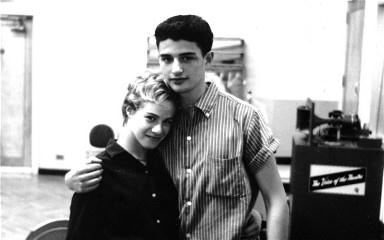
Carol King & Gerry Goffin (1959)
The Shirelles grew up in Passaic, New Jersey. Inspired by other girl groups, such as the Chantels (“Maybe) and the Bobettes (“Mr. Lee”), they started to write songs and sing together while still in high school. In 1958, the Shirelles recorded their ode to a week-long romance, called “I Met Him on a Sunday,” and made the pop charts at #49. The next release, written by lead singer Shirley Owens and called “Tonight’s the Night,” reached #39. “Will You Love Me Tomorrow” followed, and it rose straight to the top of the charts and remained at #1 for two weeks.
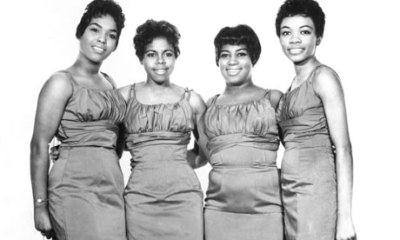
The Shireless
It is impossible to imagine a better anthem to kick off what became known as “the girl group” sound. The title poses a universal question endemic to all women, particularly to teenagers. The pre-coital time frame of the lyric is, to say the least, provocative. The song accurately portrays that maddeningly exciting, but frighteningly poignant moment. As such, “Will You Love Me Tomorrow” was the salvo shot that signaled the arrival of a feminine perspective in rock-and-roll music.
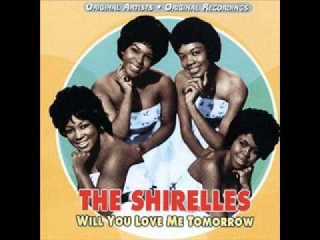
The Shireless - Will You Love Me Tomorrow
Goffin’s lyrics deftly touch on the doubt that lurks behind all new romances. As sung by Shirelles’ leader Shirley Owens in unflappable manner, the song doesn’t skimp on the wonder inherent in any fresh coupling. But it’s also unflinchingly realistic about the possibility that the fairy dust will dissolve at dawn.
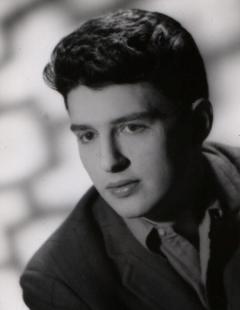
Gerry Goffin
“Can I believe the magic in your sighs?” Owens pointedly asks her paramour. In the bridge, Goffin’s words flow like champagne even as they fear the possible hangover: “Tonight with words unspoken/You’ll say that I’m the only one/But will my heart be broken/When the night meets the morning sun.” King’s melody plays a big role in the overall effect, arching high in the verses and middle eight while accompanied by strings that elegantly trip across the proceedings like moonlight dancers, before coming back down to Earth for the interrogative refrain.
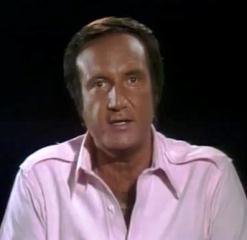
Don Kirshner
Born in 1942 in Brooklyn, Carol King grew up listening to the first wave of rock ‘n’ roll to hit mass audiences in America. Her earliest songs reflected a pop-rock sensibility geared to a white teen market. At Queens College in Brooklyn, where she trained to be a teacher, she met Gerry Goffin, with whom she would form one of the most successful songwriting teams of the ’60s (classmates included Paul Simon and Neil Diamond). A trained chemist, Goffin wrote lyrics to accompany King’s deceptively complex arrangements.
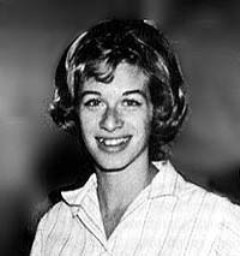
Carol King
Before “Will You Love Me Tomorrow,” Goffin and King wrote more than four dozen songs that were never recorded. They lived in a basement apartment in New York City, and when King finished her secretarial day job and Goffin finished his chemist job, they’d sit in a tiny office belonging to Don Kirshner at Aldon Music and toil over songs.
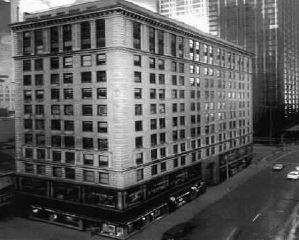
Brill Building, NYC
Goffin and King came from an era when performers rarely wrote their own material but relied heavily on songwriters to provide them with hit singles. The most famous factory for this songwriting talent in the ’50s and ’60s was New York’s Brill Building. In Rolling Stone, Jon Landau wrote: “The songs of Goffin and King are superb examples of the songwriting craft of the ’60s. Finely honed to meet the demands of the clients who commissioned them, and written with the requirements of AM radio always firmly in mind, they still managed to express themselves in a rich way. Like Hollywood directors who learned how to make the limitations of the system work for them and in the process created something of their own pop vision.”
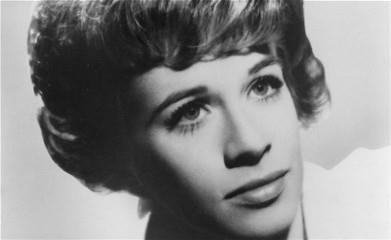
Carol King
King released her first solo album in 1970. “Writer” was an example of King’s growing musical maturity. With dense, layered piano chords, the songs were far removed from her teen pop ditties of the ’60s. King’s best work was not with a group of musicians, but when she was simply accompanying herself on piano. “I knew that her demos were more popular than her first two records,” legendary producer Lou Adler told Rolling Stone.
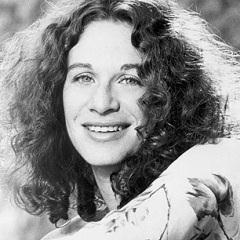
Carol King
“Tapestry,” released in February 1971, spent 15 weeks in the No. 1 spot on Billboard’s chart and stayed in the top 100 for six years. By the end of 1971, “Tapestry” was still selling 150,000 copies per week and had scored four top 10 hits; while a complete accounting of its sales has never been made, it remains one of the biggest-selling albums of all time.

Carol King
Still, Carole King is one of rock’s most valuable icons, a successful woman performer who both rejected the idea of feminism and embodied it. She and Gerry Goffin were inducted into the Rock and Roll Hall of Fame in 1990. Throughout her career, King has eluded the press, offering only rare tours or concerts and even rarer interviews and appearances. “She’s a songwriter and a recording artist,” Lou Adler told Rolling Stone after the release of “Carole King Music.” “That doesn’t necessarily have to make her a personality. It’s useless to have to explain your lifestyle in order to explain your music.”

In the 2013 Broadway “Beautiful: The Carole King Musical,” the Will You Still Love Me Tomorrow? is featured in part four times: once during its writing, once during King recording a demo of it, then with the Shirelles performing it, and then King singing and playing it later during an especially bad time in her marriage with Goffin. No other song is featured as frequently in the musical.
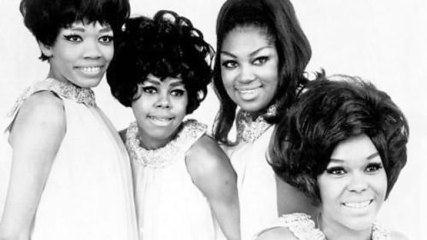
The Shireless
The Shirelles - Will You Love Me Tomorrow, lyrics
Tonight, you're mine, completely, so give me your love, so sweetly. Tonight, the life of love is in your eyes, but will you love me tomorrow? Is this a last thing treasure, or just a moments pleasure. Tonight beneath the magic of your sighs, will you still love me tomorrow? Tonight with words unspoken. You said, that I'm the only one. But will my heart be broken, when the night, meets the morning sun? I´d like to know, that your love, is love, I can't be sure of. So tell me now, and I won't ask again. will you still love me tomorrow? So tell me now, and I won't ask again, will you still love me tomorrow? Will you still love me tomorrow? Will you still love me tomorrow?

Will you still love me tomorrow?
